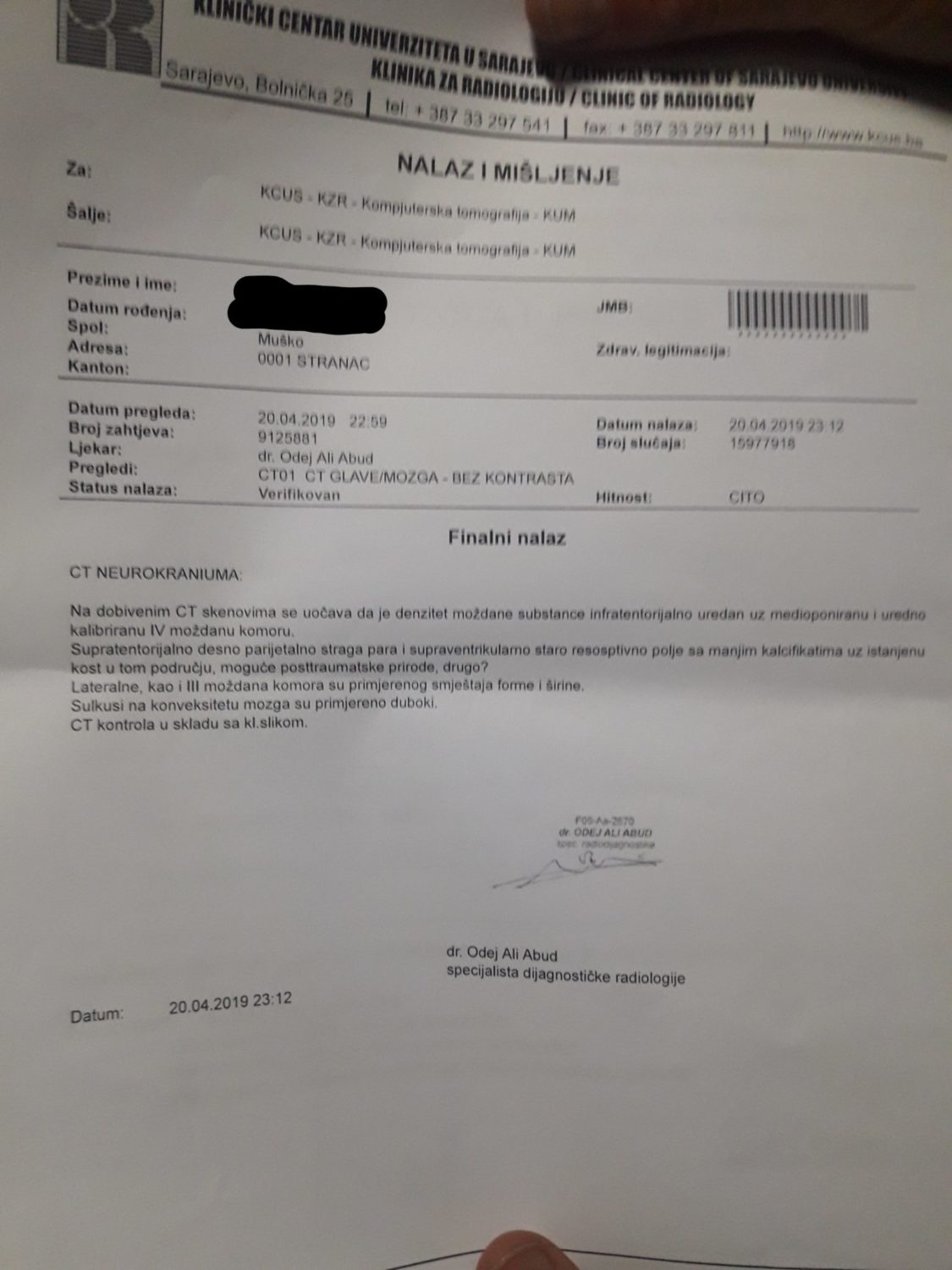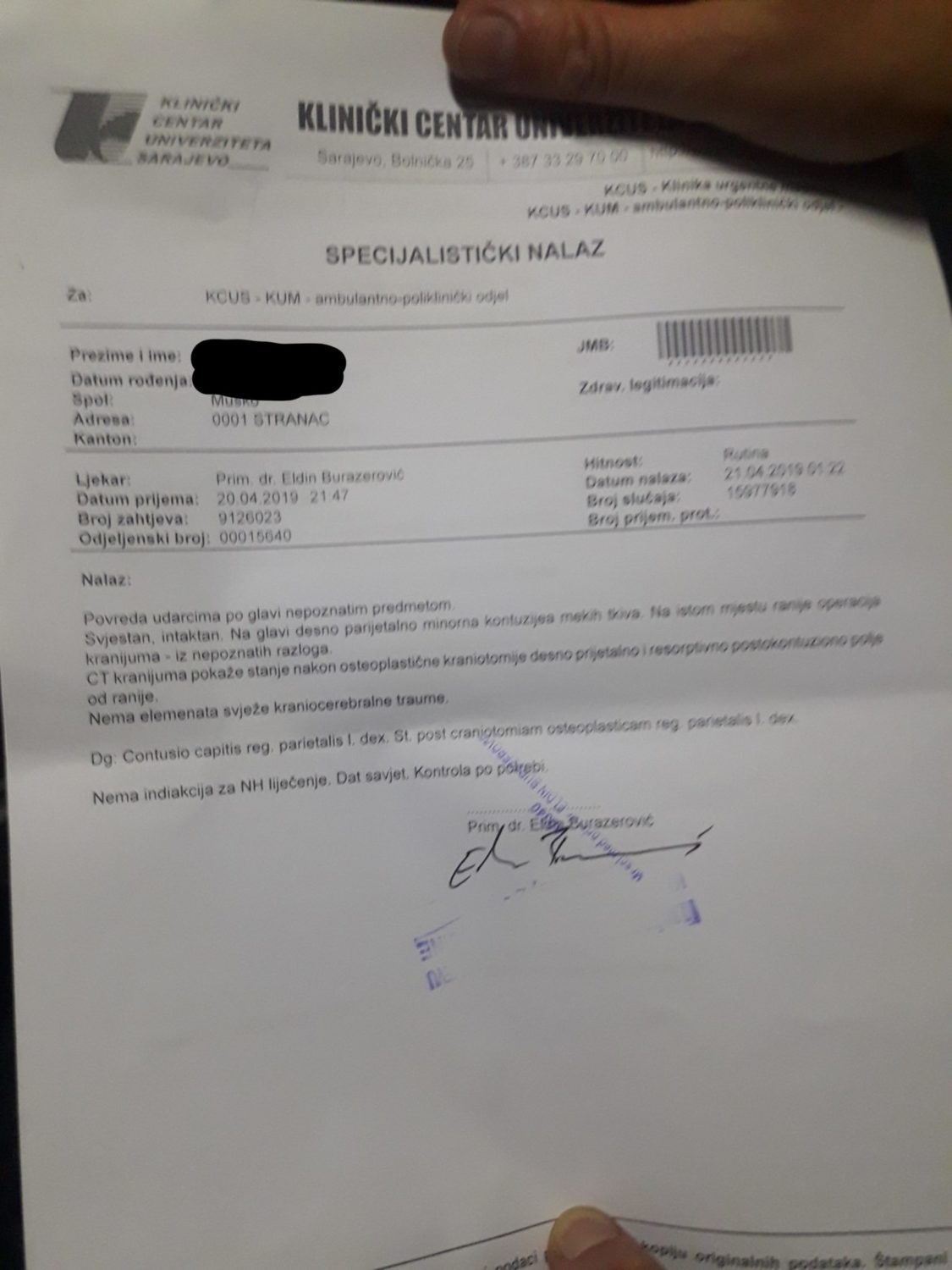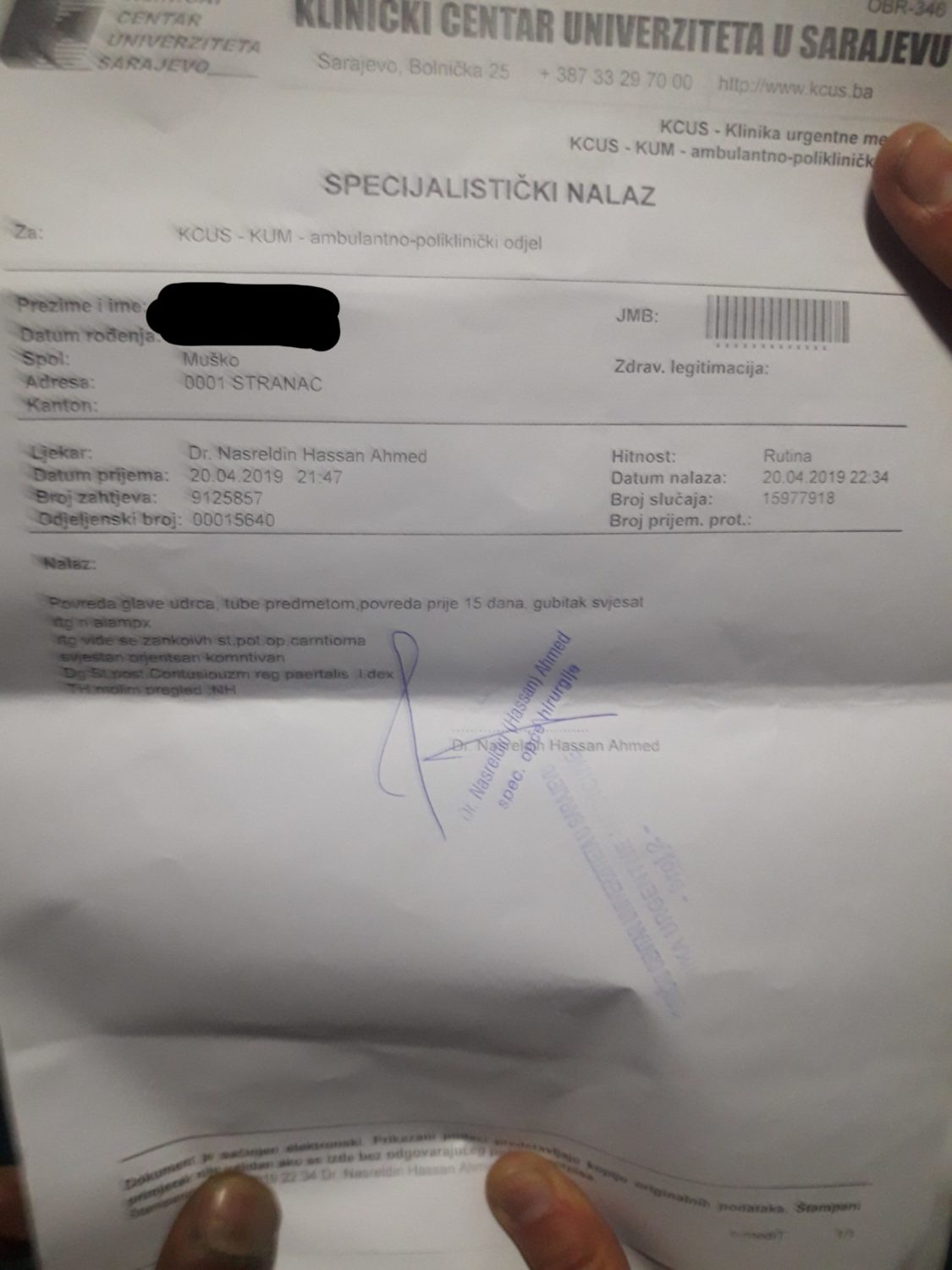The group of five men started their journey around April 3, 2019, in Velika Kladusa (BiH). They crossed the border to Croatia by foot. After three days of walking in Croatia, they reached the Croatian-Slovenian border near Stankovci (HR). They crossed the border river Kolpa around 4 am at a spot where it was several dozen meters wide, the water almost reaching their necks. They were holding each other’s hands, but one of them lost grip, was carried away a few meters downstream, but managed to swim to the Slovenian riverbank.
Once they had crossed the river, they continued walking n Slovenia. Their route led them through the forest, and they saw a bear and a wolf on their way. After one day walking in Slovenia, being the fourth day of their journey, they ran out of food and water. They were in the area of Novo Mesto (SLN) and decided to take the risk and to enter the town. There they hoped to find a car or a bus that could take them to Ljubljana.
Around 5 am the next day, they were walking on the Kandijska Cesta street in Novo Mesto at the coordinates 45.801168, 15.170676, when a yellow car stopped next to them and two officers stepped out. The respondents mentioned, that the car was not recognizable as a police car and rather looked like an ambulance car. The officers wore dark blue uniforms, carried batons and guns and pointed with them at the group of five, shouting:
“Stop!“
When the people on the move stopped, the officers made a call and within minutes another police car, a gray Audi, arrived with its siren turned on. Two more officers got off the second car, wearing the same uniforms and arms as the first two.
“I hear that normally in Europe police is good, with respect. Slovenia is European Union but police had no respect!”
The officers asked them for their documents, but they didn’t have any. The police then asked:
“Why are you here?”
One of the individuals answered:
“Asyl.”
And the officer answered:
“No asyl, no asyl!”
The officer didn’t react, when the individual asked:
“Why no asyl?”
Instead, he told them first to kneel down and then to lie down on their stomach on the pavement in the middle of the town. The five of them had to hold their hands behind their heads. Then the officers started kicking them and beat them with their batons. The violence lasted several minutes, one of the respondents estimated it to have been around 15 minutes. All of this happened on the street in the middle of the town. There were passers-by who stopped and looked at them, and according to the respondents, the police said:
“Look Arab, look Arab.”
Both, the officers and the passers-by, laughed while they were being beaten.
Afterwards, the officers made the five of them enter the windowless backspace of the van. The space was very small for five persons with a slim bench to sit, but no seat belts. It was very cold in the van, and there was no fresh air. The driver drove fast and in many curves:
“The driver had no respect.”
All five individuals had to vomit, and several times one of them fell on the floor. They shouted and asked to stop the car, but the officers didn’t react.
After an estimated one-hour drive, the van stopped at a police station at an unknown location. Inside, they had to write their name on a paper and to hold it in front of their chest while the officers took photos. They also had to sign five papers each, all in English. The migrants were not given copies of these papers, but could remember some details of the contents: On some papers, they had to confirm the information they had given about their names, their countries of origin, their migration route and more. Another paper stated a fine of 450 Euros per person for their irregular entry into Slovenia.
The officers took their phones, eight in total, their money, around 1500 Euros in total, and their luggage. They were also told to take off all their clothes beside their underwear, and had to spend the whole night like this, freezing.
On next morning, i.e. the sixth day of their journey, they got back their clothes and were told to enter a van. After an estimated five-hours drive, they stopped in what the respondents called a “closed camp”. They suppose this camp to have been in the region of Vinica (SLN), near to the Slovenian-Croatian border and the distance to the police station to have been much less than a five hours of driving and that the driver may have driven detours.
The respondents estimated that there were around 30 other persons in this “closed camp”, all of them people on the move from different countries, i.e. Pakistan, Afghanistan, Algeria, Morocco, Tunisia, Egypt. There were also women and children among them.
One person of the “closed camp’s” staff was wearing a military suit, the others wore uniforms in gray and green colors. The respondents referred to them as “guards”.
The staff interrogated the group, they again had to tell their names, age and country of origin. There was a translator present who was Palestinian. The respondents mention, that the translator played a dubious role, and they had the impression that the translator faked parts of the conversation.
The staff also asked them why they came to Slovenia.
“I say I come to Slovenia because I need asyl.”
The staff then asked what his problem in his country, Algeria, is.
“I work for police in Algeria for four years, from 2015 to 2018. Therefore, I have problem with Daesh in my country. I need asyl. No economic asyl, but political asyl.”
The staff then asked him about his migration route from Turkey to Slovenia, and he answered correctly. They then asked him whether we had been registered in Greece and Montenegro, and he told that his fingerprints were taken in Greece.
“But I did not have proper asyl in Greece, only a registration for staying.”
In the “closed camp”, the group of five was brought to a shared cell with a toilet bowl, but neither beds nor mattresses, just a carpet on the floor. They got a thin blanket for the night and had to undress again. This time they were allowed to wear a t-shirt and their underwear. They got pasta to eat, and just a few minutes after eating all of them fell asleep. The respondents believe there might have been some drugs in the food which made them sleep.
The following day, i.e. the seventh day of their journey, around April 10, the Slovenian authorities took them by van to a border station where they arrived around 1 pm. The respondents located the border crossing on the bridge between Vinica (SLN) and Pribanjci (HRV) at the coordinates 45.4564781, 15.2485685. The Slovenian authorities talked to some Croatian police officers. They still had the group’s money, € 1500, and the phones in a bag which they handed over to the Croatian officers together with their luggage.
The Croatian officers told the group to enter another van. The individuals asked for water, but the officers just said:
“No water.”
During the following three to four-hour drive, all of them got sick again.
“It was very cold inside the van, all of us got sick and vomited.”
Around 4 pm, the van stopped on a small road in the forest at the Croatian-Bosnian border, supposedly in the area of Gejkovac (HR). There were six officers, wearing ski masks, caps and dark blue uniforms with an emblem of the Croatian flag on their sleeves. The people on the move asked for their money and phones, but the officers refused. Instead, they took the eight phones and destroyed their charging sockets with a stick.
“One of us said many times ‘give me my phone because there are photos of my mama and papa, the photos are my souvenirs’. One policeman said ‘Ah, mama and papa!’, took his baton and struck him once on his head. Our friend went down immediately. The policemen then told the other four of us ‘Take your friend, go Bosnia!’”
The four of them did as they were told. They had to carry their friend as he was only partially conscious. In the evening around April 10, they reached Velika Kladuša.
By the time of the interview, some ten days after the incident, the man who had been struck on the right side of his head wasn’t able to properly move his left arm and fingers and his left leg. He was limping, not able to straighten the fingers of his left hand, and he was not able to lift his left arm higher than his chest. He also suffered from headache and needed painkillers and his friends said that he had also some loss of memory. His friends and he himself confirmed that he had not had similar difficulties before he was hit during the push-back. He was concerned that he would not be able to find work due to these handicaps.
The following photo, taken on April 20, shows his left hand. He was not able to straighten his fingers any more than this:
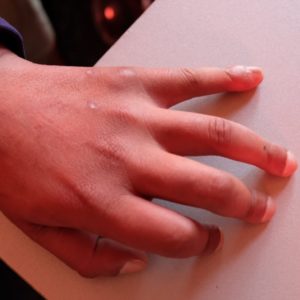
The following picture shows the dent on his head where he had been struck:
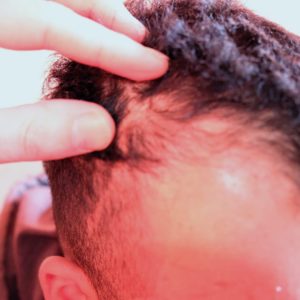
On April 20, the man was able to see a doctor at the university clinic of Sarajevo who conducted a computer tomography. Three doctors, one of them a neurosurgeon, gave their written opinions (see photos of the reports written in Bosnian). All doctors stated that there was an injury with a contusion on the right side of the head, caused by a hit with an unknown object. At the same place they found a scar from a previous cranium operation. The cranium thus showed the state after an osteoplastic craniotomy and a resorptive post contusion field. One doctor states that a post trauma may have been caused by the hit. The neurosurgeon did not find an indication for neurosurgical treatment.
